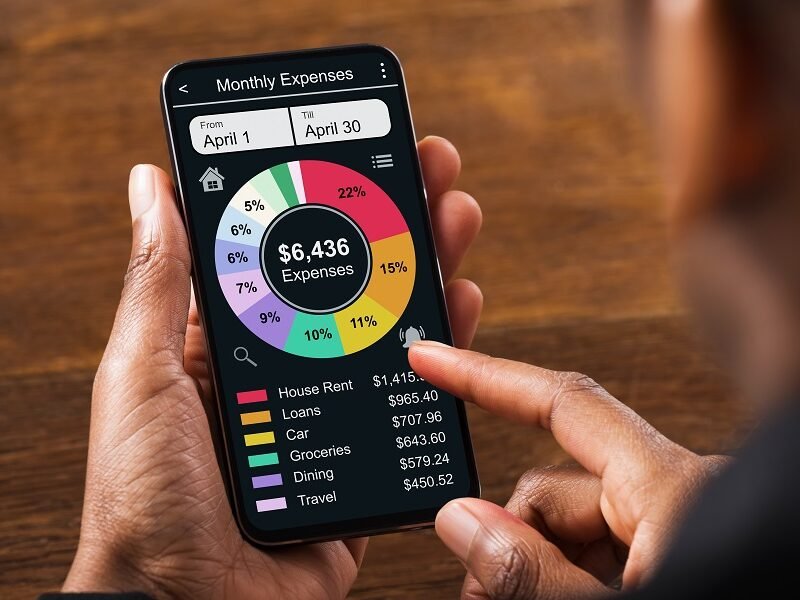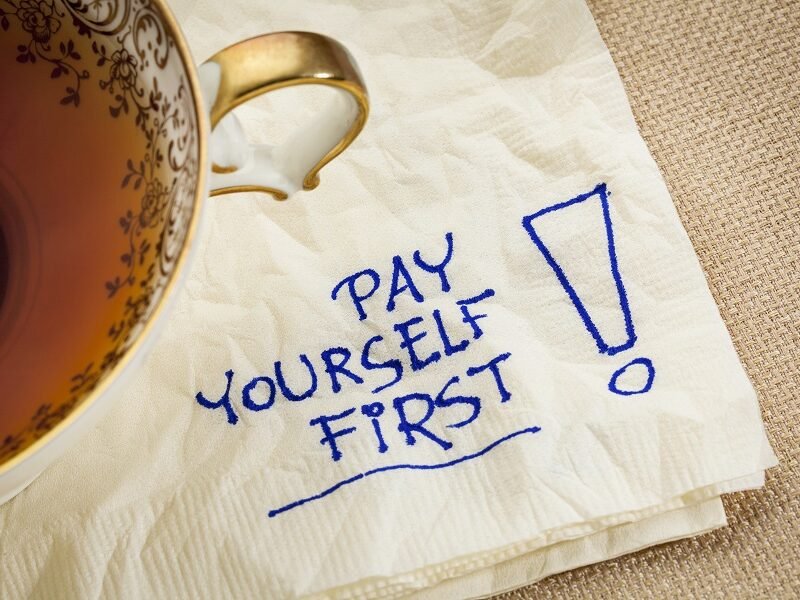Why I Don’t Like Acorns for Saving Money

Table of Contents
 Acorns as a platform, grew to fame through a unique way of allowing uses to save: the service allows its customers to link their bank accounts and Acorns will ‘round-up’ your purchases to the nearest dollar taking the additional amount and investing in the stock market.
Acorns as a platform, grew to fame through a unique way of allowing uses to save: the service allows its customers to link their bank accounts and Acorns will ‘round-up’ your purchases to the nearest dollar taking the additional amount and investing in the stock market.
The theory is that most folks would not notice the additional outflows while at the same time turning a small amount of money (an ‘acorn’) into a an ‘oak tree.’ It should be noted that Acorns has expanded its offerings to include checking and other banking services, but the focus here is on its namesake: saving the ‘round-up.’
But is this approach to saving and investing worth your time?
In this article I’ll spell out the reasons why I don’t think using Acorns to save money is a worthwhile venture (this says nothing about the quality of their funds BTW) and how alternate methods of saving would likely be more prudent and successful.
Unintentional Savings with Acorns
Acorns’ goal is to get the average person saving by helping them save unintentionally. After a user links their accounts to Acorns so the service can see the balance of each purchase, Acorn’s ‘rounds-up’ the balance and eventually withdraws the differences in $5 increments.
For example, if you spend $1.25 on a pack of gum and $7.75 somewhere else on sandwich, Acorns will round both balances up. In this case they would go up to $2 and $8 respectively. The total amount rounded up would be $1 ($0.25 plus $0.75). The $1 dollar is withdrawn from the same checking account and then invested in with one of Acorn’s funds.
In general, the average person would not notice these ‘round-ups’ over the long term. The amount set aside and saved would increase as more is saved and with the earnings potential of the investment vehicle selected.
My Experience with Acorns
Several years ago, I did sign up for Acorns. I linked my checking account and set a threshold for withdrawing the ‘round-ups’. Everything did work as advertised. As I made purchases and the ‘round-ups’ reached a benchmark of $5, $5 would be subsequently withdrawn from the same checking account account. The amount was then invested in a predetermined stock market fund.
As far as getting what is presented on Acorns’ website, it is spot on. There is nothing mischievous or misleading about their product. As predicted by Acorns’ business model and sales pitch I didn’t miss the ‘round-ups,’ and they certainly never played a factor in any of my purchase decisions.
Why I Don’t Like Acorns
So, what’s the rub? Why don’t I like Acorns? Why have I singled out this company to write a negative review when they appear to be trying to make a product that helps people save more?
There are two main reasons.
Reason 1: Acorns Makes it Hard to Balance the Budget
If you are reading this article, then I think it’s fair to say that you are interested in personal finance to some degree. You are interested in learning and improving your financial situation. Plain and simple, using Acorns makes it harder to have visibility on my budget.
It makes it harder for me to balance my budget.
When I would enter transactions into my budgeting software, it was easy to account for the ’round-up’ but all the transactions Acorns was conducting in my checking account was hard to follow. Which $5 withdraw was which? Had I accounted for too many? Too little? Was I confusing an Acorns’ withdrawal with something else?
I would often end what should have been a routine update of my budget frustrated. My balances were often off by a few dollars. This was by no means a game changer or an impactful event for my overall financial success… but it stressed me out and it did so routinely.
Suffice it to say, anything that causes routine stress in your financial life should have a significant benefit… some reason that you are willing to put up with it. The paltry amount I was saving because of using Acorns was not significant and thus just not worth the added stress.
I had to cut Acorns out of my life because the anxiety it created when I sat down to square away my budget was not worth the ‘pennies on the dollar’ it was saving in investments. However novel the idea, the juice just wasn’t worth the squeeze in this case.
Reason 2: It Gives a False Sense of Security
 The major issue I have with Acorns is that is gives people a false sense of security. It makes people feel like they are doing something to help them save or invest for their future… however this couldn’t be further from the truth.
The major issue I have with Acorns is that is gives people a false sense of security. It makes people feel like they are doing something to help them save or invest for their future… however this couldn’t be further from the truth.
‘Rounding-up’ your purchases can result in some ‘surprise‘ savings if done long enough but it is no substitute for intentionally setting aside a portion of your income for a specific goal. In another article, I showed how, using compounding interest, you can save a significant amount of money when saving 10-15% of your income.
This is type of responsible saving is not what is happening with Acorns.
Depending on your average purchase amounts and the difference in the ‘round-ups,’ you are likely saving only 1 or 2 percent of your expenditures, not income. This isn’t a problem if you have done your due diligence and started a savings program outside of Acorns… but, more than likely the reason you are even using Acorns is because you don’t have a solid savings plan.
The allure of ‘rounding up’ you purchases is that it is easy, and you won’t notice it. But if you won’t notice the amount that you are saving because its so small, what are the chances it will make a difference in the future?
Acorns is trying to fill a savings gap that it shouldn’t be. Acorns is a novel way to save ‘loose change’ but should not be considered a real way to save towards any type of real goal… unless your goal is to buy use lawn equipment at the end of the year.
It’s the modern way of cleaning out the coins in your couch and then subsequently investing those pennies, quarters and what was probably a French Fry but passes as a nickel into the stock market.
Saving Better, Saving Intentionally
The better way to save is to save with intention. To do this means to look at your expected income in the future week, month or year and DECIDE (using your brain) to save a specific amount based on your goals and the reality of what your outflows will look like. Another name for this is budgeting.
Ideally, whatever amount you decided to save and invest in your budget would be withdrawn from your paycheck or your bank account automatically at the beginning of the budgeting period. This is called ‘paying yourself first.’
To ‘pay yourself first,’ is remarkably different then ‘buying something and then investing a little change afterward.’ By using critical thinking and determining what your goals are and how to get there with a specific savings plan you will end up with far more money than by unintentionally saving the remainders of your purchase balances.
Long story short: use your brain and you will end up rich. Rely on spare change and end up with enough money for a cheap vacation once every few years.
But I Already Save, Can I use Acorns
Yes. If you have already thought about how much to save and are succeeding at reaching those targets routinely then go use Acorns. If you are looking to set aside a small amount of money that does not matter for any of your continued financial success, then you are good to go.
When you look at your balance over time just remember to ask yourself the question of, ‘how did so much money ended up there unintentionally? Could you have found a better way to get it to somewhere where it could have been used better?’
Concluding Thoughts
There is nothing wrong with Acorns as a company. They give you exactly what they advertise, however, the false sense of security that may naturally arise in those who use the service could be dangerous.
There is no doubt that if a person continuously makes many small transactions, that the amount of money that Acorns could be helping this person save could be substantial. But this would be unpredictable. If folks substitute their Acorns’ savings for an actual attempt at setting aside a serious amount of cash it could lead to some painful financial realizations later in life.
That said, if you don’t budget on a daily or weekly basis then Acorns could be an okay way to consolidate some loose change… just don’t count on it to move the scales of financial success. Budget, save and plan for retirement… then if you are still bored sign up for Acorns.
Financial Warning and Note
Just a friendly reminder that I write this blog for fun. You should not make investment decisions based on this blog post. You should consult a financial advisor or someone with a fiduciary responsibility on your behalf prior to making any type of decisions about money.
Guy Money
As a formally trained Data Scientist I find excitement in writing about Personal Finance and how to view it through a lens filtered by data. I am excited about helping others build financial moats while at the same time helping to make the world a more livable and friendly place.



